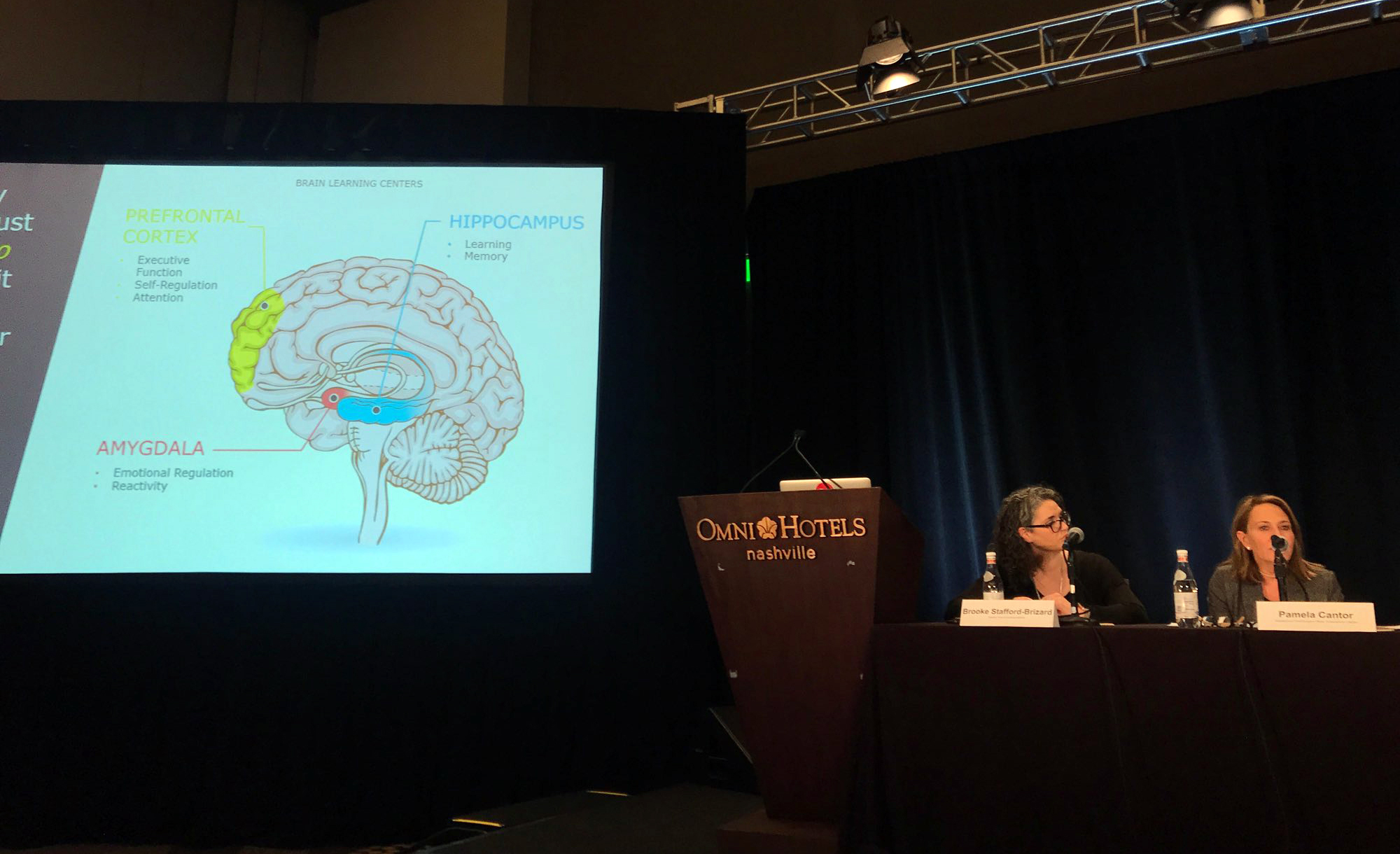Pamela Cantor, M.D., presents at ExcelinEd’s 10th Annual National Summit on Education Reform
Turnaround for Children President and CEO Pamela Cantor, M.D., was a featured panelist at the 10th Annual National Summit on Education Reform presented by ExcelinEd (the Foundation for Excellence in Education) November 30, 2017, in Nashville, TN. The summit convened leaders in education policy and education reform from across the nation to explore emerging best practices and the future of education in the United States.
 Brooke Stafford-Brizard, Ph.D. and Pamela Cantor, M.D. in Nashville
Brooke Stafford-Brizard, Ph.D. and Pamela Cantor, M.D. in Nashville
Dr. Cantor was a featured panelist in a strategy session titled “Social and Emotional Learning and Academic Development: The Science and Art of Integration.”
The panel was moderated by Brooke Stafford-Brizard, Ph.D., Director, Chan Zuckerberg Initiative and author of Turnaround’s “Building Blocks for Learning” white paper. Co-panelists included Dale Erquiaga, President and Chief Executive Officer, Communities In Schools; John Widmer, Senior Director of School Culture, KIPP Foundation; and Dr. Arthur Fields, DCPS, filling in for DCPS Chancellor Antwan Wilson.
Dr. Cantor, Dr. Stafford-Brizard, and the panelists discussed the science behind social-emotional learning and successfully-implemented practices, including essential skills and mindsets that enable students to succeed and how schools and communities can integrate these skills with their academic curricula so students can manage themselves, think critically, collaborate with others and resolve conflicts. They discussed policies that help ensure all schools – particularly those which serve high concentrations of students who experience adversity – have the science-based tools and strategies to ensure all children are able to successfully learn and develop.
According to Dr. Cantor in her presentation, “The environments around us, the experiences we have and most of all the relationships in our lives shape the developing brain for good or bad. Positive relationships promote the development of the brain, literally the wiring and integration of brain structures. It is this integration and interconnectivity in development that releases the potential in each of us. At the same time, negative experiences that produce chronic stress can hurt the development of the brain. This creates the enormous opportunity we have to design schools to develop whole children and successful learners.”
Watch a recording of the session:

Share This Story